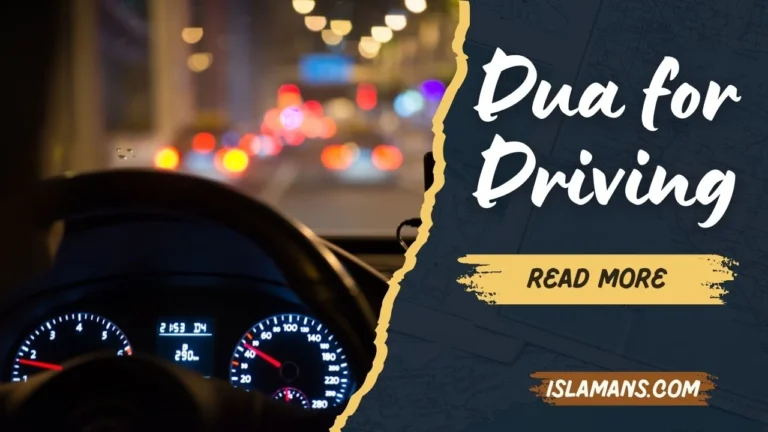In the hustle and bustle of our daily lives, driving has become an essential part of our routine. Whether it’s a short commute to work or a long road trip, the importance of safety on the roads cannot be overstated. For Muslims, seeking Allah’s protection and blessings through dua (prayers) is a fundamental practice, and this extends to the act of driving. This blog post will explore the significance of dua in Islam, particularly focusing on the specific prayers recommended for safe travel. We’ll provide the Dua for Travel (Dua-e-Safar) in its original Arabic text, with English and Urdu translations, and contextualize its importance through selected Hadiths.
What is Dua-e-Safar?
The Dua-e-Safar is a special supplication for travel that Muslims recite to seek Allah’s protection and blessings. It is recommended to recite this dua before embarking on any journey, whether by car, plane, or any other mode of transportation. This dua is derived from the teachings of the Prophet Muhammad (PBUH), who emphasized the importance of seeking Allah’s help in ensuring safe travels.
The Dua for Travel / Driving (Dua-e-Safar)
Original Arabic Text
Here is the Dua-e-Safar in its original Arabic text:
سُبْحَانَ الَّذِي سَخَّرَ لَنَا هَذَا وَمَا كُنَّا لَهُ مُقْرِنِينَ وَإِنَّا إِلَى رَبِّنَا لَمُنْقَلِبُونَ
English Translation
“Glory to Him Who has subjected this to us, and we could never have it (by our efforts). Surely, unto our Lord, we are returning.”
Urdu Translation
“پاک ہے وہ ذات جس نے ہمارے لئے اس سواری کو مسخر کر دیا،اور ہم اس کو قابو میں نہیں لا سکتے تھے اور ہم اپنے رب کی طرف لوٹنے والے ہیں۔”
Detailed Explanation
- Recognizing the Source of Our Blessings:
The dua starts with “Subhanalladhi”, glorifying Allah for bestowing the blessing of transportation upon us. This acknowledgment instills gratitude in our hearts for being able to travel comfortably, a luxury that many don’t possess.
- Our Limitations:
The phrase “وَمَا كُنَّا لَهُ مُقْرِنِينَ” highlights our human limitations. It reminds us that without Allah’s help, we wouldn’t be able to harness vehicles and other modes of transport efficiently.
- Returning to Allah:
The concluding part, “وَإِنَّا إِلَى رَبِّنَا لَمُنْقَلِبُونَ”, is a humbling reminder of our inevitable return to the Creator. It not only prompts safe travel but also signifies the ultimate journey every soul must take, thus embedding a deep sense of accountability and spirituality.
Can I recite the dua for driving for short trips?
Absolutely. The dua for driving is not limited to long journeys; it can be recited for any trip, regardless of distance. Short trips, like daily commutes or errands, are also made safer and more blessed by reciting the dua.
When should I recite the Dua for driving?
The best time to recite the Dua for driving is before starting your journey, whether it’s a long-distance trip or a short drive. This practice aligns with the Sunnah of Prophet Muhammad (PBUH) and helps ensure that Allah’s protection accompanies you throughout your journey.
What should I do if I forget to recite the Dua-e-Safar before starting my journey?
If you forget to recite the Dua-e-Safar before beginning your journey, you can still recite it as soon as you remember, even if you are already en route. The key is to have the intention and seek Allah’s protection whenever possible.
Can the Dua-e-Safar be recited for non-recreational travels, such as commuting to work or school?
Yes, the dua can and should be recited for all types of travel, including daily commutes for work, school, or other regular activities. Seeking Allah’s protection and blessings is relevant for any and all journeys.

